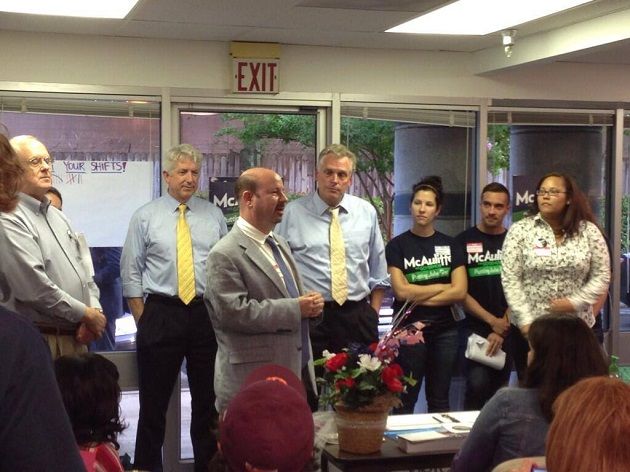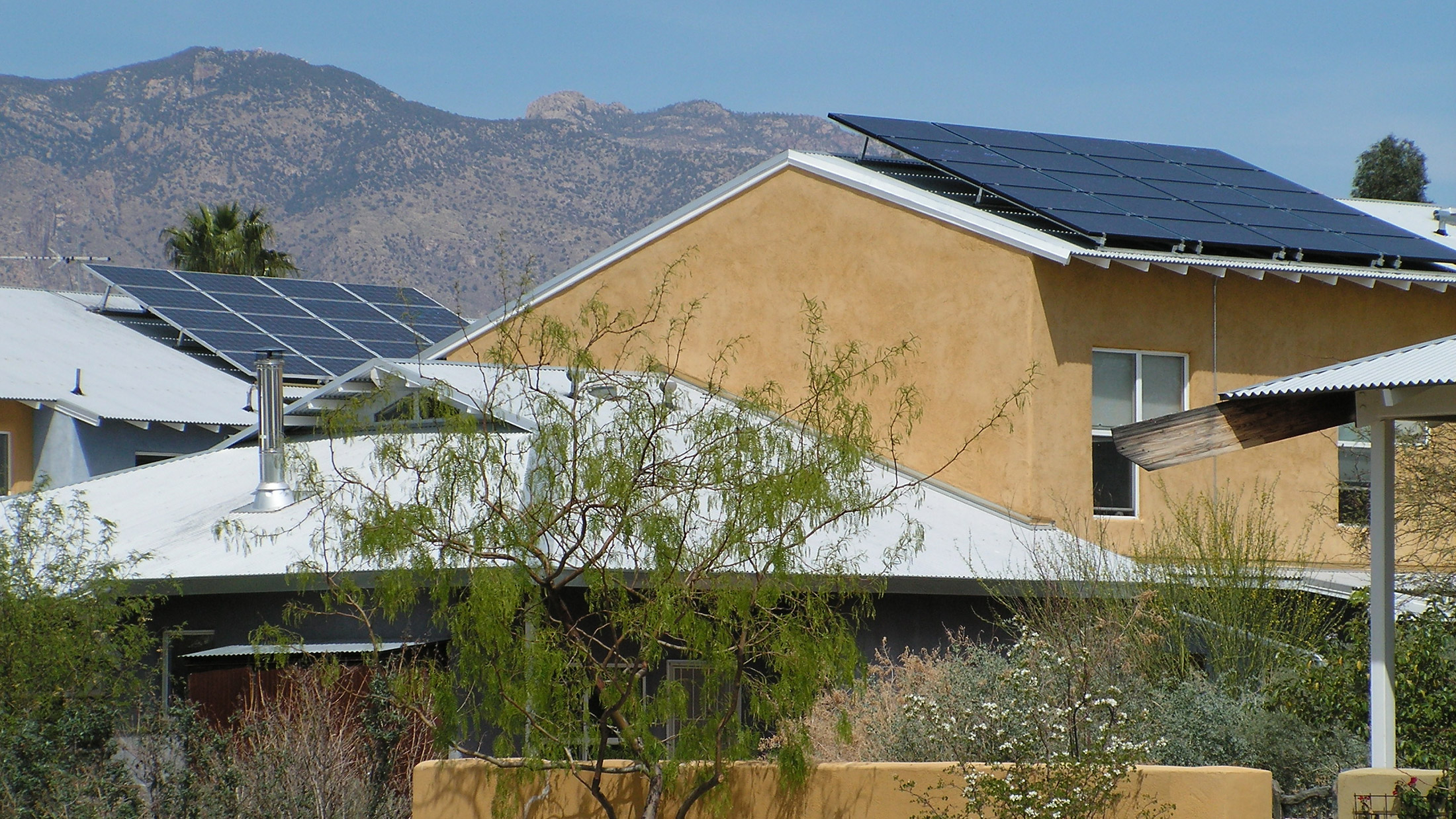Arizona Public Service Co. isn’t very happy that so many of its customers have solar panels. It wants to sell electricity to them, not the other way around. So it has been campaigning to convince regulators to impose new rules that would make it more expensive for customers to maintain solar arrays on their roofs.
Currently, under a net-metering program, the utility must buy excess power produced by customers’ rooftop solar panels. It’s been proposing that it should pay a lot less for that power — $50 to $100 less a month.
On Thursday, following two days of hearings, regulators at the Arizona Corporation Commission voted 3-t0-2 to reject the utility company’s bid. Instead, they imposed a fee on new net-metering customers that will work out to about $5 a month. Current net-metering customers are exempt from the new fee.
Arizona is one of 43 states that require utilities to buy solar power from customers with rooftop solar systems. This lowers consumers’ monthly power bills and reduces revenue for the power companies. The decision at a hearing yesterday in Phoenix validates APS’s position that the arrangement is unfair because it shifts some of the costs of maintaining the grid to consumers who don’t have photovoltaic panels.
Arizona Public Service — and other electric utilities around the country — argue that solar-generating customers aren’t paying their fair share of upkeep for the power grid and other infrastructure.
Solar companies like SolarCity and Sunrun and environmental groups like the Sierra Club argue that imposing additional costs on solar-panel owners will slow the adoption of renewable energy.
For now, Arizona Public Service scored only a small victory. Solar supporters aren’t happy about the fee increase, but they’re breathing a sigh of relief that it wasn’t 10 times bigger.
“The commission’s decision was being watched by utilities nationwide,” reports the Associated Press. “Utilities in other states have been pushing similar arguments and seeking the same sorts of rate increases.”
You can be sure debate over this issue will continue to rage across the country.




